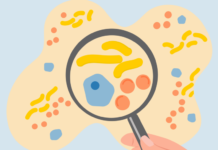NEW DELHI – Behavioral therapies such as cognitive behavioral therapy (CBT) and gut-directed hypnotherapy (GDH) may offer effective relief for patients with irritable bowel syndrome (IBS), according to a new international study published Friday in The Lancet Gastroenterology & Hepatology.
IBS, a chronic intestinal disorder characterized by abdominal pain and changes in bowel habits, affects about 5 percent of people worldwide. Although lifestyle changes and medications are commonly prescribed, they often provide only partial relief, prompting growing interest in mind–body approaches.
The study, led by Professor Alexander C. Ford of the University of Leeds in the United Kingdom, found that “brain-gut behavioral therapies such as CBT and GDH” can significantly improve symptoms compared with standard treatments.
CBT helps patients reframe negative thought patterns and develop coping strategies for managing discomfort, while gut-directed hypnotherapy uses a trance-like state to suggest symptom improvement and promote relaxation.
“The study highlights the potential of brain-gut behavioral therapies such as CBT and GDH as treatment options for managing IBS,” Ford said. However, he noted that confidence remains limited for behavioral approaches outside the brain–gut category, such as contingency management or general stress-reduction methods.
The research, which included contributions from scientists in Canada and the United States, analyzed data from 67 randomized controlled trials involving 7,441 participants. It compared the effectiveness of various behavioral therapies against control groups receiving dietary guidance, educational materials, or routine medical care.
Results showed that both CBT and gut-directed hypnotherapy—whether delivered in person, online, or via mobile apps—were more effective than standard treatment options in alleviating IBS symptoms based on self-reported patient outcomes.
Researchers urged that larger and more rigorous clinical trials be conducted to confirm the findings and to identify which patients stand to benefit most.
The study adds to growing evidence that targeting the brain–gut connection may play a key role in treating chronic gastrointestinal disorders where conventional therapies fall short. (Source: IANS)














